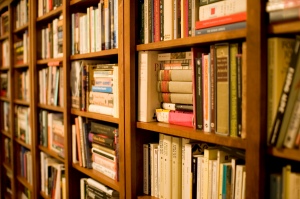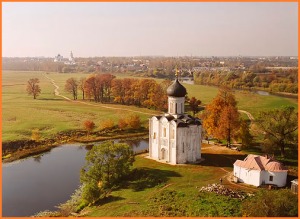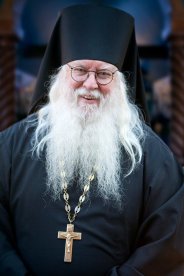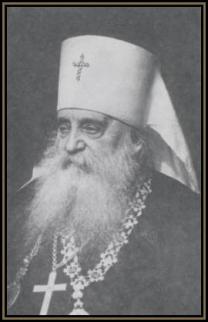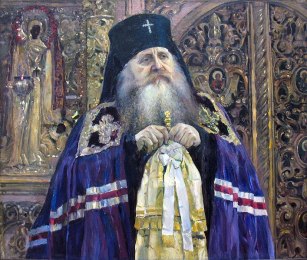“The whole earth is a living icon of the face of God.” – St. John of Damascus (675-749)
Since before I can remember, I have always been passionately interested in the study and history of world faiths and religious traditions. The shelves of my amateur ‘library’ in my bedroom at my family home are filled with books on ancient, early modern and modern European, Middle Eastern, American, Chinese, Japanese and Indian history, and books detailing the beliefs and histories of different world religions and philosophies, especially Christianity, Judaism, Islam, Buddhism and Hinduism.
When I was home in New York over this past Thanksgiving break, I took what I intended to be only a few minutes and ended up losing myself for hours pouring over dozens of these magnificent books which marked my intellectual growth and absorption of knowledge as a child and teenager. It was a beautiful experience, transporting me back to the very pages which opened my mind, like a window, to the peoples, beliefs and practices of times ancient, medieval, and more recent.
As I looked through several books on Christianity and the history of Rome, Tsarist Russia and the Byzantine Empire, I became absorbed in the pages where my exposure to the teachings, spiritual life, and beautiful liturgy and aesthetics of Orthodoxy first began at a very young age: coffee table books such as Brian Moynahan’s The Russian Century or Rick Smolan’s A Day in the Life of the Soviet Union, heavy art history books from the Smithsonian and the Hermitage about St. Petersburg and Moscows palaces, churches, convents and monasteries. All of these books which marked my entry into Orthodoxy, at least intellectually and in my imagination, were gifts from my grandparents, one of my father’s colleagues, and one of my uncles who had traveled to Russia.
These books transported me to two very different places: the art history books and photographic histories ushered me to a magnificent bygone world of lavish Courts, opulent palaces, solemn liturgies, cozy-looking villages and beautiful monasteries perched on lakes and the edge of great rivers, while the books on twentieth century Russian and Soviet history made me aware- often through their wordless, graphic images – of the almost unspeakable horrors which millions of peoples of Eastern Europe endured in the past century. It seemed incredible to me that Orthodoxy had somehow managed to survive at all under an unimaginably cruel, repressive and totalitarian regime dedicated to the cause of militant atheism and the abolition of all religion, considered superstition incompatible with the basic principles of revolutionary socialism and Marxist-Leninism.
Years later, I would learn of just how savage the persecution of Orthodox Christians and Eastern-rite Catholics had been under the Soviet period, especially during the first years under Lenin, and then Stalin’s dictatorship prior to the Nazi invasion of the USSR and the Khrushchev years. A regime which dynamited ancient cathedrals, churches and lavras, sent spies to monitor priests and their congregations, and which first symbolically lined up icons and sentenced them to death, then followed with hundreds of thousands of priests, nuns, monks, and hierarchs, and untold millions of faithful laity.
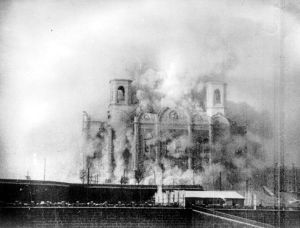
The original Cathedral of Christ the Savior was completed in Moscow in 1839 in memory of Russia’s 1812 victory over Napoleon. Stalin ordered the Cathedral’s demolition in December 1931, and he proposed to build a “Palace of Soviets ” on the ground of the demolished Cathedral. Instead the site became host to the world’s largest public swimming pool.
This exposure, both to the beauty and richness of Orthodoxy, and the incredible suffering of Eastern Christians in the past century, deeply touched something in me long before I ever worshiped in an Orthodox temple, finding myself immersed in the timeless grace and ethereal majesty of the Divine Liturgy. I felt an inexplicable connection to the history of the Russian, Ukrainian and Georgian people, and wondered what it was about their faith that could have so threatened or outraged the Soviets that they attempted to completely eradicate it from the earth. How could anyone endure what so many Orthodox Christians had endured, how could people hold onto their faith when millions of their fellow believers went to their death for it?

After the end of the Soviet Union, the rebuilt Cathedral was completed in 1997 following exact specifications to ensure its obedience to the original building structural design. Once again a major feature of the Moscow skyline, it stands now as a symbol of the endurance and triumph of Russian Orthodoxy over the Soviet regime which sought to destroy it.
After centuries of existing as the only official State faith of the Russian tsars (a position which enabled the Russian Church to produce some of Christianity’s most eloquent and brilliant theologians and holiest saints, but which also led to institutional corruption, entrenched political factions, and the abuse of the basic freedoms of non-Orthodox religious minorities, especially Jews), how then did the Russian Church endure a complete reversal of fortune when it became the prime target of a militantly atheist communist State committed to its destruction?
Because of my intellectual introduction to Orthodox history and my familiarity with the twentieth century traumas to so many of the Orthodox peoples (Greek, Serbian, Georgian, Russian and Ukrainian especially), when I first experienced the Byzantine Liturgy, while I was astounded to have found myself having stepped into what seemed like an ancient royal court or an entirely new world, the heavenly realm itself, I still felt inexplicably at home. Amid the chanting of the ancient psalms, the ethereal singing of the choir, the censing of the church, her beautiful, expressive icons, and her worshipers, I became absorbed in not just the rich aesthetic smells and sounds and sights of the worship- the vestments of the priests, chanting, the bows and prostrations, and heartfelt prayer litanies- but I became aware of a grace, the presence of God, which was stronger than anything I had ever before encountered.
In my spiritual journey, I had visited many different Protestant churches, attended different Catholic parishes, and also read widely on non-Christian faiths and attended several of their services and meditations. But when I encountered Orthodoxy, stepping into the light of the Liturgy’s eternal banquet, I experienced a kind of awe-inspiring awakening which confirmed not only God’s existence and power, but His unspeakable, transcendent majesty and timelessness, and His deep concern for me and all the world.
I realized the reality that worshiping the Trinity which created us should be the core purpose for our existence. For, if there is truly a God who created all that is, if we truly believe that, and if He loved us so much that He chose to become incarnate so that we might enter into mystical union with Him through the divinization of our very being, then how can we not make Him the center of our lives? By extension, how can we be Christians unless we love every person on this earth as a unique creation made in His image?

